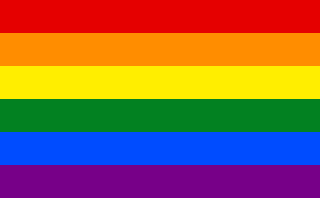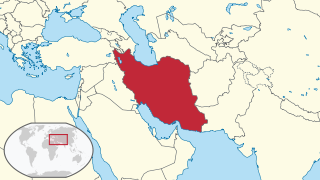A person may be considered to be a transgender person if their gender identity is inconsistent or not culturally associated with the sex they were assigned at birth and consequently also with the gender role and social status that is typically associated with that sex. They may have, or may intend to establish, a new gender status that accords with their gender identity. Transsexual is generally considered a subset of transgender, but some transsexual people reject being labelled transgender.
Nationality is a legal identification of a person in international law, establishing the person as a subject, a national, of a sovereign state. It affords the state jurisdiction over the person and affords the person the protection of the state against other states.
Gender dysphoria (GD) is the distress a person feels due to a mismatch between their gender identity and their sex assigned at birth. The diagnostic label gender identity disorder (GID) was used until 2013 with the release of the DSM-5. The condition was renamed to remove the stigma associated with the term disorder.
Queer is an umbrella term for sexual and gender minorities who are not heterosexual or are not cisgender. Originally meaning "strange" or "peculiar", queer came to be used pejoratively against those with same-sex desires or relationships in the late 19th century. Beginning in the late 1980s, queer activists, such as the members of Queer Nation, began to reclaim the word as a deliberately provocative and politically radical alternative to the more assimilationist branches of the LGBT community.

LGBT or GLBT, is an initialism that stands for lesbian, gay, bisexual, and transgender. In use since the 1990s, the term is an adaptation of the initialism LGB, which began to replace the term gay in reference to the broader LGBT community beginning in the mid-to-late 1980s. The initialism, as well as some of its common variants, functions as an umbrella term for sexuality and gender identity.
Sex reassignment surgery (SRS), also known as gender reassignment surgery (GRS) and several other names, is a surgical procedure by which a transgender person's physical appearance and function of their existing sexual characteristics are altered to resemble those socially associated with their identified gender. It is part of a treatment for gender dysphoria in transgender people.
Gender identity is the personal sense of one's own gender. Gender identity can correlate with a person's assigned sex at birth or can differ from it. Gender expression typically reflects a person's gender identity, but this is not always the case. While a person may express behaviors, attitudes, and appearances consistent with a particular gender role, such expression may not necessarily reflect their gender identity. The term gender identity was originally coined by Robert J. Stoller in 1964.
Identity politics is a term that describes a political approach wherein people of a particular religion, race, social background, class or other identifying factor develop political agendas and organize based upon the interlocking systems of oppression that affect their lives and come from their various identities. Identity politics centers the lived experiences of those facing various systems of oppression to better understand the ways in which racial, economic, sex-based, gender-based, and other forms of oppression are linked and to ensure that political agendas and political actions arising out of identity politics leave no one behind.
The following outline offers an overview and guide to transgender topics.
A trans man is a man who was assigned female at birth. The label of transgender man is not always interchangeable with that of transsexual man, although the two labels are often used in this way. Transgender is an umbrella term that includes different types of gender variant people. Many trans men choose to undergo surgical or hormonal transition, or both, to alter their appearance in a way that aligns with their gender identity or alleviates gender dysphoria.

Lesbian, gay, bisexual, and transgender (LGBT) people in the Islamic Republic of Iran face legal challenges not experienced by non-LGBT residents. While people can legally change their sex, sexual activity between members of the same sex is illegal and can be punishable by death.

Before the Islamic Revolution in 1979, the issue of transgender identity in Iran had never been officially addressed by the government. Beginning in the mid-1980s, however, transgender individuals were officially recognized by the government and allowed to undergo sex reassignment surgery. As of 2008, Iran carries out more sex change operations than any other nation in the world except Thailand. The government provides up to half the cost for those needing financial assistance, and a sex change is recognized on the birth certificate.
Gender dysphoria in children (GD), also known as gender incongruence of childhood, is a formal diagnosis for children who experience significant discontent due to a mismatch between their assigned sex and gender identity. The diagnostic label gender identity disorder in children (GIDC) was used by the Diagnostic and Statistical Manual of Mental Disorders (DSM) until it was renamed gender dysphoria in children in 2013 with the release of the DSM-5. The diagnosis was renamed to remove the stigma associated with the term disorder.
The classification of transsexual people and people with other gender atypicalities has been done since the mid-1960s. In medicine and psychiatry, terms such as heterosexual and homosexual have been based on a person's sex assignment at birth, which has prompted the increased use of androphilia and gynephilia to avoid terminological confusion and bias. In social, political and medical contexts, the classification is often relative to one's desired sex.
The questioning of one's sexual orientation, sexual identity, gender, or all three is a process of exploration by people who may be unsure, still exploring, or concerned about applying a social label to themselves for various reasons. The letter "Q" is sometimes added to the end of the acronym LGBT ; the "Q" can refer to either queer or questioning.

Transgender people have a gender identity or gender expression that differs from the sex that they were assigned at birth. Some transgender people who desire medical assistance to transition from one sex to another identify as transsexual. Transgender, often shortened as trans, is also an umbrella term; in addition to including people whose gender identity is the opposite of their assigned sex, it may include people who are not exclusively masculine or feminine. Other definitions of transgender also include people who belong to a third gender, or else conceptualize transgender people as a third gender. The term transgender may be defined very broadly to include cross-dressers.
Discrimination or prejudice against non-binary people, people who do not identify as exclusively male or female, may occur in social, legal, or medical contexts. Both cisgender and binary transgender people, including members of the lesbian, gay, and bisexual communities, can display such prejudice.

Lesbian, gay, bisexual and transgender citizens generally have limited or highly restrictive rights in most parts of the Middle East, and are open to hostility in others. Sex between men is illegal in 10 of the 18 countries that make up the region. It is punishable by death in six of these 18 countries. The rights and freedoms of LGBT citizens are strongly influenced by the prevailing cultural traditions and religious mores of people living in the region – particularly Islam.
Latinx is a gender-neutral neologism, sometimes used to refer to people of Latin American cultural or ethnic identity in the United States. The ⟨-x⟩ suffix replaces the ⟨-o/-a⟩ ending of Latino and Latina that are typical of grammatical gender in Spanish. Its plural is Latinxs. Words used for similar purposes include Latin@ and Latine. Related gender-neutral neologisms include Chicanx and Xicanx.
Second-generation gender bias refers to practices that may appear neutral or non-sexist, in that they apply to everyone, but which discriminate against a gender because they reflect the values of the gender who created or developed the setting, usually a workplace. It is contrasted with first-generation bias, which is deliberate, usually involving intentional exclusion.




